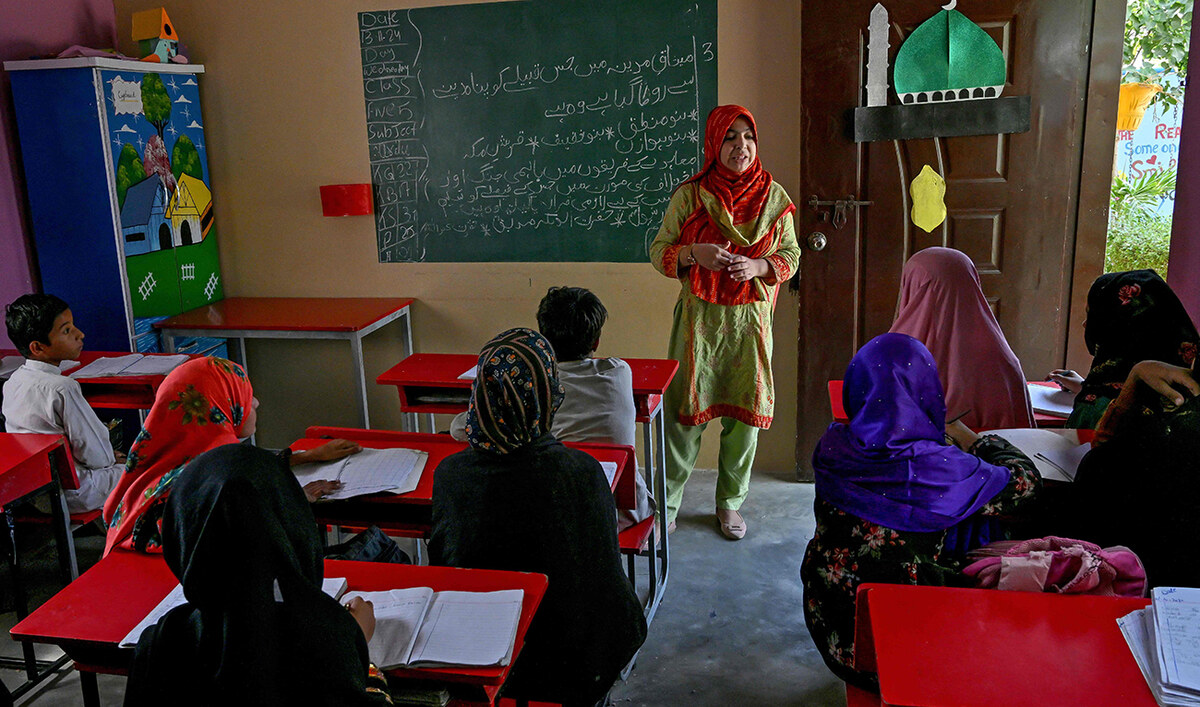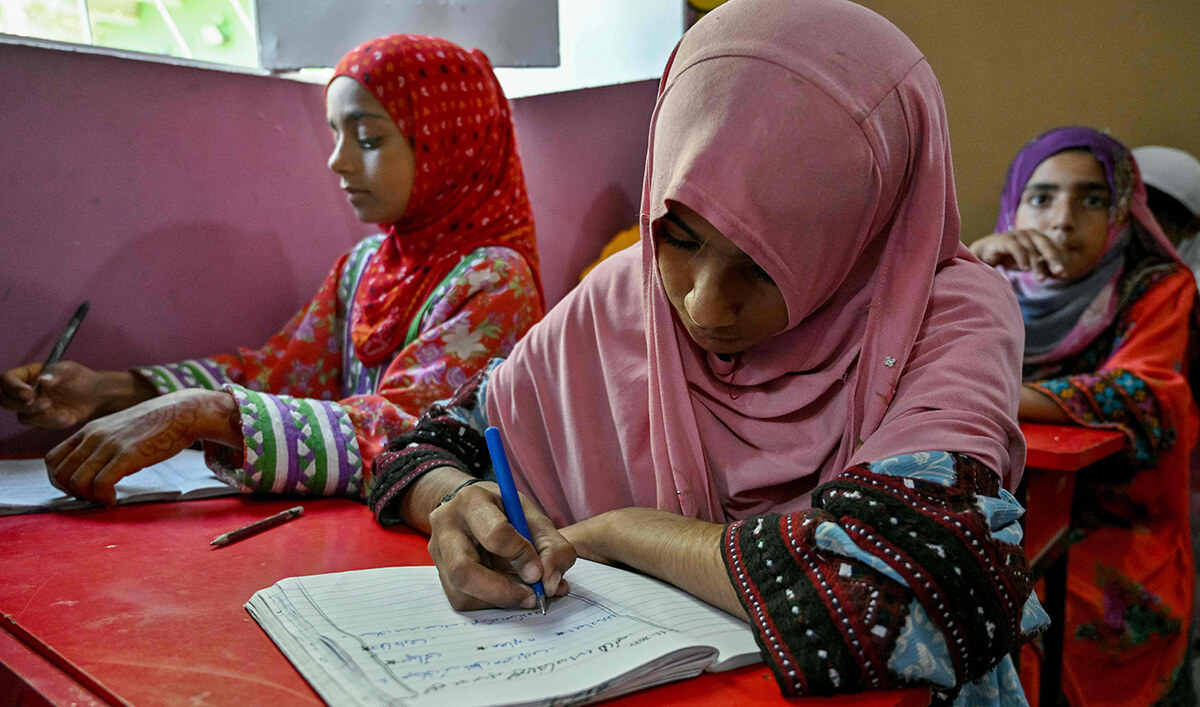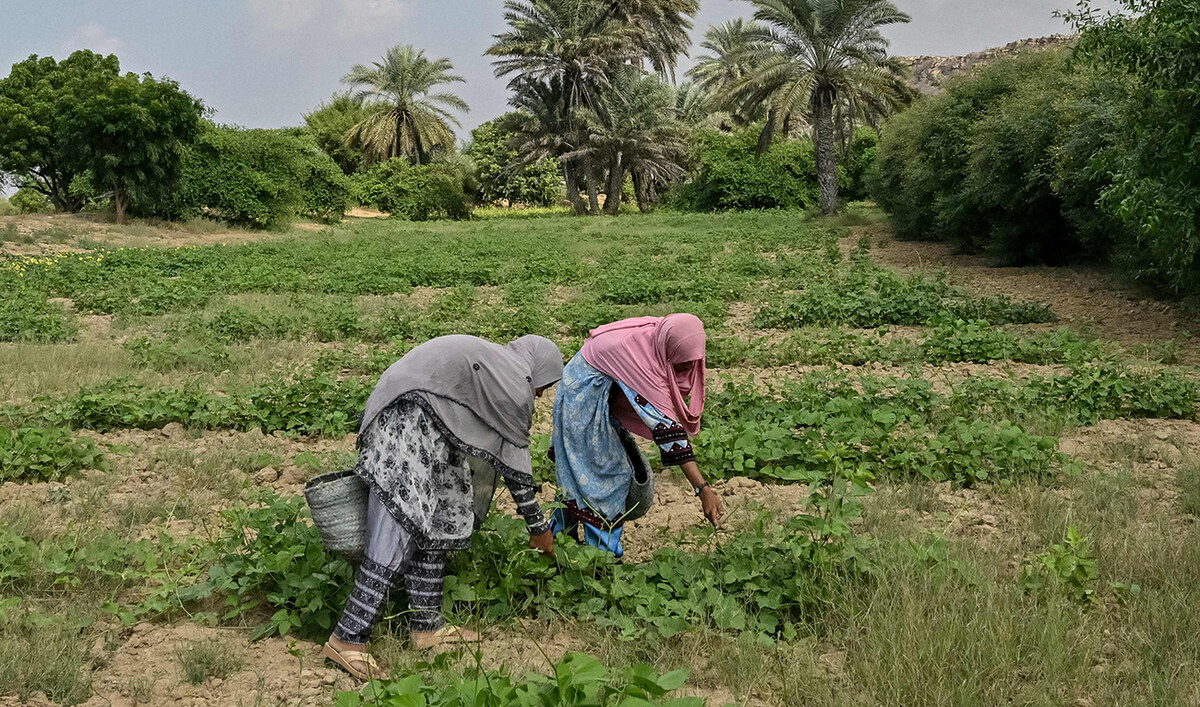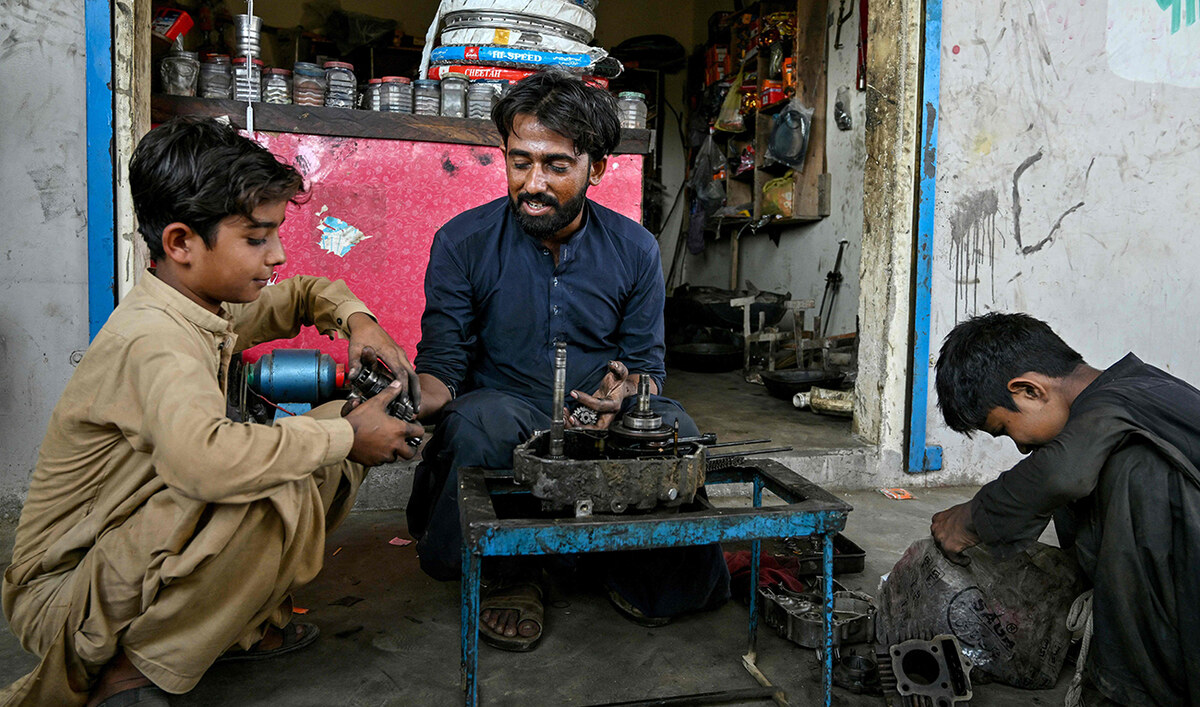ISLAMABAD: Petroleum Minister Musadik Malik said on Tuesday his government would keep the gas prices unchanged until winter months of December and January, Pakistani state media reported, amid rising costs of living in Pakistan.
In February this year, Pakistan’s caretaker government had increased the price of natural gas by up to 67 percent for residential consumers in a bid to meet one of the key fiscal tightening conditions of the International Monetary Fund (IMF) for the final review of its last bailout program, worth $3 billion, that ended in April.
The gas price for protected consumers category of up to 0.25 cubic hectometers (hm3) and up to 0.9 hm3 was increased to Rs200 from Rs121 and Rs350 from Rs300, or between 40 percent and 67 percent, while the rates for non-protected category consuming up to 0.25 hm3 to above 4 hm3 was raised to Rs500 to Rs4,200, or between 5 percent to 25 percent.
Malik denied reports of any further increase in gas tariff and said the government was striving to avoid placing any additional burden on the people, the state-run APP news agency reported.
“If the need arises to provide relief, we will make decisions in consultation with all provinces and move forward together,” he was quoted as saying. “Our aim is to avoid increasing gas prices.”
Pakistan’s inflation rate surged to a historic high of 38 percent in May 2023, but has since declined to clock in at 11.1 percent in July. The central bank has also revised its inflation forecast upwards from 20-22 percent to 23-25 percent for the current fiscal year due to a hike in energy prices.
Pakistan, which imports most of its energy needs, saw days of protests last month over the rising costs of living, mainly fueled by energy price hikes. The protests prompted Prime Minister Shehbaz Sharif to announce a three-month, Rs50 billion subsidy for electricity consumers using up to 200 units a month.
Malik said 86 percent consumers using up to 200 units had been given relief from the federal government, while 98 percent of domestic electricity consumers, who used up to 500 units, had been provided relief by the Punjab government, urging other provincial governments to offer similar relief.
Pakistan to keep gas prices unchanged until winter months — petroleum minister
https://arab.news/jjq4t
Pakistan to keep gas prices unchanged until winter months — petroleum minister

- In February, Pakistan’s caretaker government had increased the price of natural gas by up to 67 percent for residential consumers
- Pakistan last month saw days of protests over the rising costs of living, mainly fueled by exorbitant hikes in energy prices
Malala Yousafzai ‘overwhelmed and happy’ to be back in Pakistan

- The education activist was shot by the Pakistani Taliban in 2012 when she was a schoolgirl
- She has arrived for a global summit in her home country on girls’ education in Islamic world
ISLAMABAD: Nobel Peace Prize laureate Malala Yousafzai said Saturday she was “overwhelmed” to be back in her native Pakistan, as she arrived for a global summit on girls’ education in the Islamic world.
The education activist was shot by the Pakistani Taliban in 2012 when she was a schoolgirl and has returned to the country only a handful of times since.
“I’m truly honored, overwhelmed and happy to be back in Pakistan,” she told AFP as she arrived at the conference in the capital Islamabad.
The two-day summit was set to be opened Saturday morning by Prime Minister Shehbaz Sharif, and brings together representatives from Muslim-majority countries, where tens of millions of girls are out of school.
Yousafzai is due to address the summit on Sunday.
“I will speak about protecting rights for all girls to go to school, and why leaders must hold the Taliban accountable for their crimes against Afghan women & girls,” she posted on social media platform X on Friday.
The country’s education minister Khalid Maqbool Siddiqui told AFP the Taliban government in Afghanistan had been invited to attend, but Islamabad has not received a response.
Afghanistan is the only country in the world where girls and women are banned from going to school and university.
Since returning to power in 2021, the Taliban government there has imposed an austere version of Islamic law that the United Nations has called “gender apartheid.”
Pakistan is facing its own severe education crisis with more than 26 million children out of school, mostly as a result of poverty, according to official government figures — one of the highest figures in the world.
Yousafzai became a household name after she was attacked by Pakistan Taliban militants on a school bus in the remote Swat valley in 2012.
She was evacuated to the United Kingdom and went on to become a global advocate for girls’ education and, at the age of 17, the youngest Nobel Peace Prize winner.
Pakistan Cricket Board inducts Inzamam-ul-Haq, Saeed Anwar and others in its Hall of Fame

- Inzamam was a member of Pakistan’s 1992 World Cup-winning team, while Misbah was part of the ICC Men’s T20 World Cup 2009 winning squad
- Mushtaq captained the team to first-ever Test win in Australia in 1977, while Anwar scored 194 against India to break Viv Richards’ record
ISLAMABAD: The Pakistan Cricket Board (PCB) has inducted former cricket greats Inzamam-ul-Haq, Misbah-ul-Haq, Mushtaq Mohammad and Saeed Anwar in its Hall of Fame, who join the likes of Abdul Qadir, AH Kardar, Fazal Mahmood, Imran Khan, Wasim Akram and Zaheer Abbas in the illustrious group.
Inzamam played international cricket from 1991 to 2007 and was a member of Pakistan’s 1992 World Cup-winning team, while Misbah, who represented Pakistan from 2001 to 2017, was part of the ICC Men’s T20 World Cup 2009 winning squad and guided the team to the No.1 spot in the ICC Test Team Rankings in 2016.
Mushtaq played for Pakistan from 1959 to 1979 and captained the team to its first-ever Test win in Australia in 1977, featured in inaugural ICC Men’s Cricket World Cup 1975 in England before coaching the Pakistan side to the ICC Men’s Cricket World Cup 1999 final – also in England. Saeed Anwar represented Pakistan from 1989 to 2003, amassing a total of 31 centuries and 68 half-centuries, including three centuries and three half-centuries across the 1996, 1999 and 2003 World Cups.
The four icons of the game were inducted following a voting process, which was participated in by Akram, Zaheer, former Pakistan captain Azhar Ali, former Pakistani women cricketers Bismah Maroof and Nain Abidi, and journalists Majid Bhatti, Mohi Shah, Mohammad Yaqoob, Nauman Niaz, Sawera Pasha and Zahid Maqsood.
“On behalf of the Pakistan Cricket Board, I extend heartfelt congratulations to these four cricketing legends on their well-deserved inductions into the PCB Hall of Fame,” PCB Chairman Mohsin Naqvi said in a statement.
“This honor represents a tribute to their outstanding contributions to Pakistan cricket and to the global game.”
The four stalwarts will be formally inducted into the PCB Hall of Fame during the course of the year when they will be presented with commemorative caps and specially-designed plaques, according to the PCB.
Inzamam said he was “deeply honored” to be inducted into the PCB Hall of Fame.
“My journey as a professional cricketer, representing Pakistan on the world stage for nearly 16 years,” he said in comments shared by the PCB.
“I owe immense gratitude to my fellow cricketers, dedicated support staff and my family, without whom this journey would not have been possible. Representing Pakistan during an era with such high-caliber players was a privilege and their influence played a vital role in my growth and development as a batter.”
In his statement, Misbah said that representing Pakistan was an “absolute privilege” and this recognition by the Pakistan Cricket Board served as the “perfect crowning achievement” of his journey.
“Being acknowledged by your parent organization, alongside the appreciation of cricketing experts and fellow players is both gratifying and fulfilling,” he said.
“It is a testament to the dedication, relentless effort and sacrifices that went into meeting the highest standards of international cricket and translating those preparations into memorable performances.”
Mushtaq said that to be honored and recognized 45 years after playing his last match for Pakistan was “truly humbling” for him.
“Being part of the Pakistan cricket team during its formative years was both exciting and rewarding,” he said. “I feel privileged to have played alongside and against some of the most outstanding cricketers and thorough gentlemen, who played hard while always upholding the true spirit of the game.”
Anwar, who struck three successive ODI centuries in Sharjah and scored 194 against India in Chennai to break Viv Richards’ long-standing record for the highest individual score in ODIs, said he was “deeply grateful” to the panel for inducting him into the PCB Hall of Fame.
“My journey had its challenges, but it was a privilege to face them head-on. Each match I played for Pakistan holds a special place in my heart, though missing out on the ICC Cricket World Cup 1992 remains a regret,” he said.
“This journey, filled with triumphs and lessons, wouldn’t have been complete without the overwhelming support of our fans and the camaraderie of my teammates.”
Pakistan to open today two-day summit on girls’ education in Muslim countries

- The conference’s aim is to stress Islam’s message that both men, women have right to education
- Over 150 dignitaries from 44 Muslim and other friendly states are taking part in the conference
ISLAMABAD: Pakistan will open today, Saturday, a two-day summit on girls’ education in Muslim communities, with over 150 dignitaries from 44 Muslim and other friendly states taking part in the conference.
The global summit, hosted by the Pakistani education ministry, aims to address the challenges and opportunities in advancing girls’ education across Muslim communities worldwide, according to Pakistan’s foreign office.
Prime Minister Shehbaz Sharif will inaugurate the conference and deliver a keynote address at the opening session. He will reaffirm the nation’s commitment to promoting girls’ education and gender equality.
Education Minister Khalid Maqbool Siddiqui this week said the primary aim of the conference is to stress the implementation of the Islamic message, which clearly states that both men and women have the right to education.
“By promoting girls’ education, we can build better homes, a better society and a stronger nation,” he said at a media briefing, adding that an “Islamabad Declaration” will be announced at the end of the summit that would outline decisive steps to transform girls’ education in Islamic countries.
Several dignitaries, including Organization of Islamic Cooperation (OIC) Secretary-General Hissein Brahim Taha and Egyptian Grand Mufti Dr. Nazir Mohamed Ayad, have arrived in Pakistan to attend the summit.
Pakistan has also extended an invitation to Afghanistan to join representatives from other Islamic countries and attend the conference in Islamabad.
“We have extended an invitation to Afghanistan to participate in this conference and hope that their delegation will attend as it is a very important neighboring country,” Siddiqui said.
Since the Taliban’s return to power in 2021, at least 1.4 million Afghan girls have been denied access to secondary education, according to a report by the United Nations International Children’s Emergency Fund (UNICEF) released in August last year.
Siddiqui said everyone respects tribal customs and cultures, but all such practices must align with Islamic values in Muslim countries, adding that nothing holds precedence over them.
“In Islam, there is no justification for restricting women’s education,” he added.
‘Education apartheid’: schooling in crisis in Pakistan

- Pakistan is facing severe education crisis, with over 26 million children out of school, the majority in rural areas
- Poverty is the biggest factor keeping children out of classrooms, but the problem is worsened by other factors too
ABDULLAH GOTH: Aneesa Haroon drops off her tattered school bag at her rural home in Pakistan and hurriedly grabs lunch before joining her father in the fields to pick vegetables.
The 11-year-old’s entry into school at the age of seven was a negotiation between teachers and her parents in her farming village on the outskirts of Karachi.
“Initially, many parents were not in favor of educating their children,” headteacher Rukhsar Amna told AFP.
“Some children were working in the fields, and their income was considered more valuable than education.”
Pakistan is facing a severe education crisis, with more than 26 million children out of school, the majority in rural areas, according to official government figures — one of the highest rates in the world.
This weekend, Pakistan will host a two-day international summit to advocate for girls’ education in Muslim countries, attended by Nobel Peace laureate and education activist Malala Yousafzai.
In Pakistan, poverty is the biggest factor keeping children out of classrooms, but the problem is worsened by inadequate infrastructure and underqualified teachers, cultural barriers and the impacts of climate change-fueled extreme weather.
In the village of Abdullah Goth on the outskirts of Karachi, the non-profit Roshan Pakistan Foundation school is the first in decades to cater to the population of over 2,500 people.
“There was no school here for generations. This is the first time parents, the community and children have realized the importance of a school,” said Humaira Bachal, a 36-year-old education advocate from the public and privately funded foundation.

Still, the presence of a school was just the first hurdle, she added.
Families only agreed to send their children in exchange for food rations, to compensate for the loss of household income that the children contributed.
In Abdullah Goth, most children attend school in the morning, leaving them free to work in the afternoon.
“Their regular support is essential for us,” said Aneesa’s father, Haroon Baloch, as he watched his daughter and niece pick okra to sell at the market.
“People in our village keep goats, and the children help graze them while we are at work. After finishing grazing, they also assist us with labor tasks.”

Education in Pakistan is also increasingly impacted by climate change.
Frequent school closures are announced due to heavy smog, heatwaves and floods, and government schools are rarely equipped with heating or fans.
In the restive provinces of Balochistan and Khyber Pakhtunkhwa, education faces significant setbacks due to ongoing militancy, while classes are routinely disrupted in the capital Islamabad due to political chaos.
Although the percentage of out-of-school children aged between five and 16 dropped from 44 percent in 2016 to 36 percent in 2023, according to census data, the absolute number rises each year as the population grows.
Girls all across the country are less likely to go to school, but in the poorest province of Balochistan, half of girls are out of school, according to the Pak Alliance for Maths and Science, which analyzed government data.
Cash-strapped Pakistan’s Prime Minister Shehbaz Sharif declared an “education emergency” last year, and said he would increase the education budget from 1.7 percent of GDP to 4 percent over the next five years.
Public schools funded by the government offer free education but struggle with limited resources and overcrowding, creating a huge market for private schools whose costs can start from a few dollars a month.
In a parallel system, thousands of madrassas provide Islamic education to children from the poorest families, as well as free meals and housing, but often fail to prepare students for the modern world.

“In a way, we are experiencing an education apartheid,” said Adil Najam, an international relations professor at Boston University who has researched Pakistan’s education system.
“We have at least 10 different systems, and you can buy whatever quality of education you want, from absolutely abysmal to absolutely world-class.
“The private non-profit schools can prime the pump by putting (out) a good idea, but we are a country of a quarter billion, so these schools can’t change the system.”
Even young student Aneesa, who has set her mind on becoming a doctor after health professionals visited her school, recognizes the divide with city kids.
“They don’t work in field labor like we do.”

In the small market of Abdullah Goth, dozens of children can be seen ducking in and out of street-side cafes serving truck drivers or stacking fruit in market stalls.
Ten-year-old Kamran Imran supports his father in raising his three younger siblings by working at a motorcycle workshop in the afternoons, earning 250 rupees ($0.90) a day.
Muhammad Hanif, the 24-year-old owner of the workshop, does not support the idea of education and has not sent his own children to school.
“What’s the point of studying if after 10 to 12 years, we still end up struggling for basic needs, wasting time and finding no way out?” he told AFP.
Najam, the professor, said that low-quality education was contributing to the rise in out-of-school children.
Parents, realizing their children cannot compete for jobs with those who attended better schools, instead prefer to teach them labor skills.
“As big a crisis as children being out of school is the quality of the education in schools,” said Najam.
Rights network criticizes flood compensation and rehabilitation efforts in Sindh

- Network’s fact-finding team says not much consultation was done while designing houses for flood-hit families
- It says these one-room ‘flood-resilient’ structures lack basic amenities like toilets, can’t withstand heavy rain
KARACHI: A fact-finding mission conducted by a network of rights activists in South Asia on Friday criticized Pakistan’s response to the devastating 2022 floods, highlighting significant shortcomings in housing, sanitation and health care for flood-affected communities in Sindh.
The 2022 floods, triggered by unprecedented monsoon rains and glacial melt, displaced millions, killed over 1,700 people and caused damages exceeding $35 billion, leaving vast areas submerged for months.
The fact-finding team of South Asians for Human Rights (SAHR) visited Sindh, surveying several districts, including Larkana, Shikarpur, Nawabshah and Hyderabad, from January 6-10 to assess the government’s compensation and rehabilitation efforts.
“The preliminary findings contradict the provincial government’s claims of launching one of the world’s largest housing projects for flood affectees,” said Ahmad Rafay Alam, an environmental lawyer and SAHR Bureau Member, during a press conference in Karachi.
The mission raised serious concerns over the proposed one-room “flood-resilient” housing model, calling it insufficient and lacking essential amenities such as kitchens and toilets.
“With skyrocketed inflation, the Rs300,000 ($1,077) compensation per house is unreasonably low,” SAHR said in a statement.
It maintained there was not much consultation while designing the houses, questioning their climate resilience and warning they were unlikely to survive future disasters.
“More severe natural calamities will impact this vulnerable population, and it is highly unlikely that these structures can withstand another heavy rain,” it noted.
In Dhand, a village near Mohenjo Daro, SAHR found that only four out of 40 destroyed houses had been rebuilt.
“Some families still live in tents or neighbors’ homes, and with average family sizes of six people, it is impossible to live in these single rooms, especially when some family members are married,” it said.
The regional rights network urged the government to conduct fresh surveys to ensure no genuinely affected individuals were left out. It informed that many residents had reported difficulty in finding their names on government beneficiary lists, delaying relief.
SAHR also highlighted poor sanitation and health care in affected areas, reporting that villages lacked drainage systems, leading to outbreaks of diarrhea, malaria and skin infections.
Arab News reached out to provincial officials, including Sindh’s Information Minister Sharjeel Memon and Chief Minister Murad Ali Shah’s spokesperson Rasheed Channa, but received no response.
Sadia Javed, another government spokesperson, said she would review the mission’s findings but had not responded by the time of filing this report.














